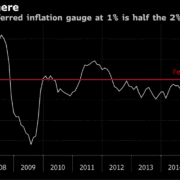The Future of Section 1031 Exchanges
In force since 1921, a section 1031 exchange encourages the reinvestment of capital for small businesses, large corporations and individual property owners. Also known as a “like-kind” exchange, this portion of the United States Internal Revenue Code could provide the opportunity for the owner of the capital to defer any recognition of capital losses or gains that might otherwise become due upon its sale. This, in turn, allows that entity to defer any capital gains taxes that might also be due.
The Section 1031 Exchange Advantage
A 1031 exchange provides a company or individual with the means to upgrade less expensive or older investments or equipment with others that are updated and pricier without having to pay capital gains taxes until a sale is eventually brokered. This enables these funds to be reinvested in the business instead, making it a valuable asset for the commercial real estate industry. It provides a method of expansion and upgrading for industrial, medical, multi-family properties and other commercial ventures without being hit hard by a capital gains tax.
Proposed Changes to Section 1031 Exchanges During the Obama Administration
In 2014, Congress’ Joint Committee on Taxation estimated that a $40 billion gain in tax revenue was possible over 10 years if section 1031 exchanges were repealed. As a result, former president Obama proposed a cap of $1 million on tax savings derived from section 1031 exchanges. By 2016, under his proposal, the exchanges of artwork, collectibles and other types of personal property — which a 1031 exchange allows — would also be eliminated completely.
How the New Political Climate Might Affect the Future of 1031 Exchanges
Since President Trump has taken office, there has been speculation about the future of section 1031 exchanges. As a presidential candidate, Trump proposed that investments with a value of more than $10 million that were also held until death be taxed at the capital gains rate. There would be an exemption for family farms as well as small businesses.
According to a tax reform plan laid out by the current administration, businesses would be able to expense real estate investments separately from land. This would result in the complete elimination of the section 1031 exchange and give way to an updated exchange for transactions other than land. This type of proposal would also mean a reduction in the capital gains tax rate that businesses would pay.
While there have been no clear-cut announcements concerning the future of section 1031 exchanges, it is unlikely that the Trump administration will completely eliminate them. Given Trump’s strong real estate ties and the fact that eliminating section 1031 exchanges would likely increase costs for consumers, he will probably leave it intact in some form.









